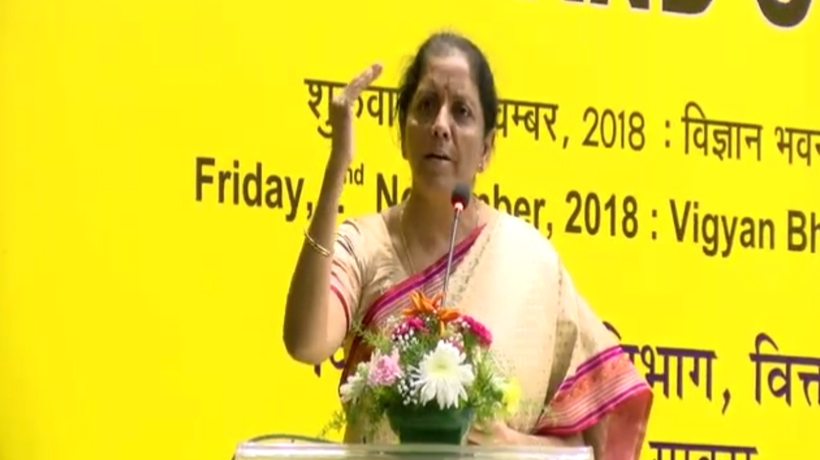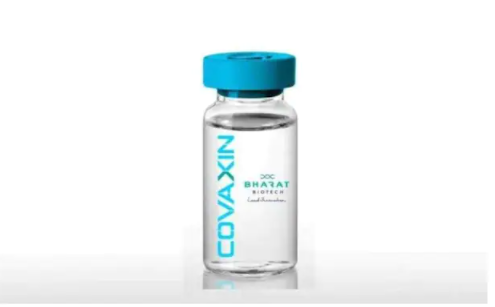Trending Now
- 830 voters names go missing in Kavundampalayam constituency
- If BJP comes to power we shall consider bringing back electoral bonds: Nirmala Sitaraman
- Monitoring at check posts between Kerala and TN intensified as bird flu gets virulent in Kerala
Whats Hot
GST meet concludes with reduced taxes on 29 items; no decision on real estate inclusion
![]() January 19, 2018
January 19, 2018
The Union Finance Minister Arun Jaitley chaired the 25th meeting of the GST council in New Delhi on Thursday.
The Council has recommended certain revision and clarifications in the GST/IGST.
With one eye on dipping revenue accruing from the one tax for all India-GST, the council has reduced taxes on 29 items and 54 sectors.
The revised rates will be applicable from January 25, 2018.
The council slashed taxes on packaged 20 litre water bottles from 18 per cent to 12 per cent.
29 Handicraft items have been put in 0 per cent slab.
GST rates for a few agricultural products have also been reduced.
GST on buses for use in public transport, which exclusively run on bio-fuels, to be reduced from 28 per cent to 18 per cent.
LPG supplied for supply to household domestic consumers by private LPG distributors 18 per cent to 5 per cent.
Delivering on a poll promise during the Gujarat polls, tax to be levied on diamonds and precious stones has been reduced from 3 per cent to 0.25 per cent, tax charged on margins involved in sale of old cars and vehicles and bio-diesels .
The GST council brought cheer to Right to Information activists by announcing an exemption for RTI services from GST levy.
Maintenance services provided by resident welfare associations came under the tax net and an 18 per cent levy was imposed for each member of the RWA paying Rs 5000 per month. Since the category is dominated by middle class segment the council was under pressure raise the bar.
After a discussion the council said that it has decided to enhance the exemption limit of Rs 5,000 per month per member to Rs 7500 in respect of services provided by Resident Welfare Association (unincorporated or non-profit entity) to its members against their individual contribution.
The decision by the GST council on 83 goods and services comes barely a dozen days before Budget 2018.
Top sources in the government said that the exemptions and reduction in taxes may not lead to a huge revenue drop.
Without divulging the details finance minister Arun Jaitley during a media briefing said, “These will have a minor impact on revenues, but will boost jobs.”
The GST council in its Thursday meet proposed the formation of a sub-committee headed by Vanaja N Sarna the CBEC (Central Board of Excise and Customs).
The body would look into rationalising rates of handicraft items and submit a report to a fitment committee of officers.
There are serious concerns in the GST council over falling GST collections and delay in compensation to states for the loss in revenue as they shifted from slew of taxes to one GST.
States like Punjab were told that their revenue would go up considerably once GST kicks in as they were primarily consuming states not manufacturing. That never happened.
“The task of compliance has become difficult for traders and businesses. The GST conceived by congress government was way better. At today’s meet states suggested that the centre should use the large corpus of Rs 3.4 lakh crore of IGST to provide compensation to states,” Badal added.
To address the delay in compensation that the centre has to pay states for the revenue they lose compared to the old tax regime, the GST council on Thursday decided to give in to the demand from the states.
The other related worry for the government is over clear signs that large scale evasion of taxes under the composition scheme, which involves less paperwork and minimum tax.
A senior official told India Today that over the last few months 17 lakh traders and businesses who have opted for the composite scheme paid only Rs 370 crore In tax returns which amount to just Rs 5 lakh per assessee.
The government indicated that the situation was not going to be allowed to continue. Senior officials said that a crackdown on evaders and plugging the gaps in the rules is being planned.
REVERSE-CHARGE MECHANISM (RCM) AND E-WAY BILL
Though there is opposition from states, there is a proposal in the Council to amend GST laws to make a Reverse-Charge Mechanism (RCM) applicable under the composition scheme.
This means that against the usual practice of traders and businesses depositing tax to the government, the buyer will do that under the RCM. The RCM is usually used in cases where an unregistered under GST seller provides a buyer who is registered and the tax is paid by the latter.
The government is waiting for the e-way Bill to come into effect all over the country from February 1, for inter-state movement of goods. Right now, 14 odd states have implemented the system and is seen as another move against tax evasion
The form-filing process could be simplified. Once a seller files sale invoices, it would be possible to claim input tax credit from these.
Before the next meet, the council is expected to hold a meeting via video conferencing to chalk out the agenda and finish off some issues pending from yesterday’s meet.
REAL ESTATE AND GST
The inclusion of real estate in GST is facing stiff opposition from states.
As a compromise, stamp duty and property tax collections may remain with states while building cess and other levies may be merged with GST.
The GST council continues to struggle with easing the hardships faced by assessees over the return filing process.
A state finance minister who attended the meet said, “The Council is slowly veering towards one return form. But, it needs more discussion before a final decision is taken.”























